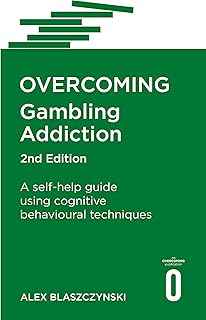Financial risk assessments are a crucial component in the realm of remote gambling, aiming to identify high-spending customers facing financial challenges. The concept goes beyond mere affordability checks, offering a targeted approach to pinpoint financially vulnerable individuals. This initiative seeks to provide support and prevent severe cases where customers engage in significant gambling activities without adequate checks or assistance. The approach is underpinned by a cautious strategy, prompting the Gambling Commission to undertake a pilot study to gauge the feasibility and impact of financial risk assessments.
The ongoing pilot, spearheaded by the Director of Major Policy Projects and Evaluation, Helen Rhodes, is progressing through multiple phases. The primary objective is to ascertain the viability of integrating financial risk assessments seamlessly into customer interactions while ensuring effective support for high-spending customers in financial distress. The evaluation process involves collaborating with NatCen as an evaluation partner to navigate the complexities of this initiative effectively.
The pilot, initiated in September 2024, involves major remote gambling operators in a meticulous examination of set success criteria. These criteria encompass evaluating the feasibility of conducting frictionless financial risk assessments, the efficiency of credit reference agencies in providing assessments, the relevance and accuracy of credit reference data in gauging financial risks, and the implementation strategies for integrating financial risk assessments into customer interactions. Each stage of the pilot is designed to test specific success criteria, providing insights that will shape the final decision-making process.
The completion of the first stage of the pilot focused on analyzing a cohort of inactive customers using historical data to gauge the efficacy of financial risk assessments. This initial phase primarily addressed the frictionless assessment criterion, offering valuable insights into data quality, understanding, and implementation challenges. By sharing account details with credit reference agencies, the pilot aimed to identify financial risk indicators associated with high-spending thresholds, laying the groundwork for subsequent stages.
Stage 1 involved over 530,000 assessments conducted across three credit reference agencies for approximately 300,000 accounts, showcasing a significant volume of data scrutinized. Notably, around 95% of assessments met the criteria for a frictionless assessment, indicating a robust matching process between operators and credit reference agencies. The findings also revealed areas for improvement, such as addressing data formatting issues and enhancing data cleansing processes to minimize discrepancies and ensure accurate assessments.
Moving forward, Stage 2 of the pilot is underway, focusing on recent data to refine the assessment process further. The cumulative insights from both Stage 1 and Stage 2 will inform the final phase of the pilot, which will delve into current data to provide a comprehensive understanding of the potential impact of financial risk assessments. The collaborative and iterative nature of this pilot underscores the commitment to thorough evaluation before implementing any regulatory changes in the gambling industry.
As the pilot progresses, stakeholders are urged to exercise caution in interpreting preliminary findings, recognizing the evolving nature of the assessment process. The meticulous approach adopted in the pilot underscores the significance of addressing data quality, understanding unique systems of credit reference agencies, and streamlining implementation strategies. By fostering an interactive and collaborative environment, the pilot is instrumental in shaping the future landscape of financial risk assessments in remote gambling, paving the way for more targeted support mechanisms and responsible gambling practices.
📰 Related Articles
- World Bank’s Role in Enhancing Remote Learning Strategies Globally
- Unlocking Compound Interest: Key Strategies for Financial Growth
- Technological Advances Fuel Rise in Digital Financial Abuse
- Rising Home Prices and Financial Strategies in Booming Real Estate
- Retaining Paraplanners: Strategies for Success in Financial Advisory Firms






